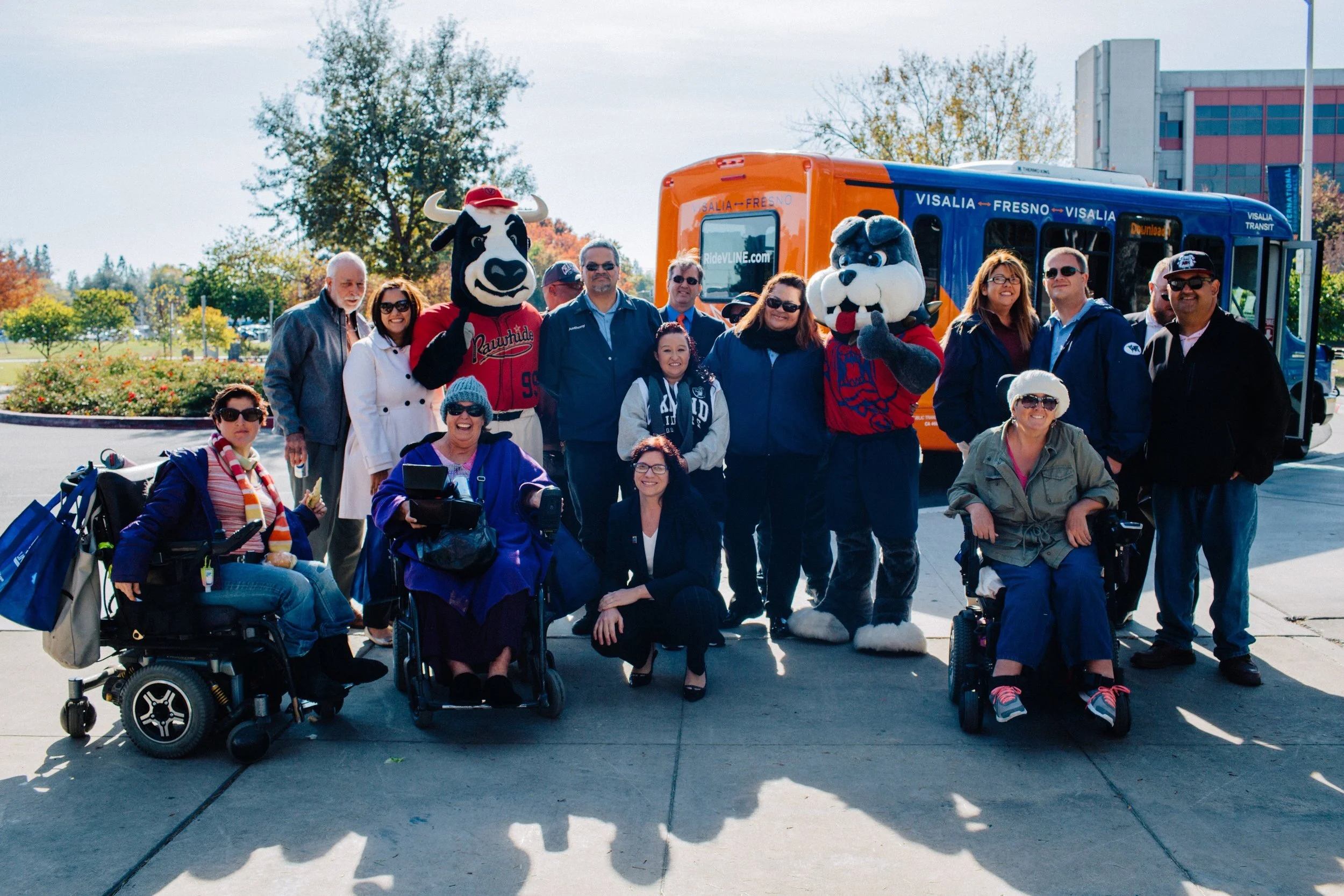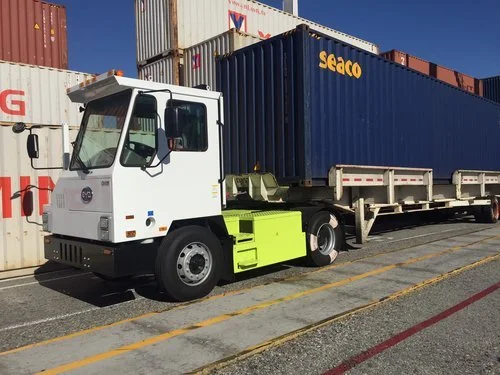The project is a continuation of the Turtle Rock Park Biomass Collection site which serves communities in eastern Alpine County. The facility provides a location to collect green waste and biomass that is cleared from private property to create defensible space and thereby reduce wildland fire risk.
Electric School Buses Benefit Students and Air Quality in Sacramento County
Zero-Emission Technology at Ports Provide Cleaner Air for Vulnerable Residents
The adjacent ports of Long Beach and Los Angeles combined are the largest fixed sources of air pollution in the South Coast Air Basin, one of the most polluted air basins in the United States, in large part because the trucks and equipment used at the ports burn diesel fuel. Recognizing this, the Sustainable Terminals Accelerating Regional Transformation demonstration project was awarded $50 million to replace trucks and equipment with zero‑emission technology. The funding, which comes from California Climate Investments, supports the deployment of 102 pieces of zero‑emission terminal equipment and trucks at seaports across California, including at the ports of Los Angeles and Long Beach. These funds are also supporting the development of new, cleaner tugboats; the deployment of two container vessels with cleaner‑burning engines; and advanced workforce development programs to support sustainable goods movement across California.
Paving the Way for Zero-Emission Freight Facilities in Long Beach
This program will deploy 38 electric yard trucks, 9 electric gantry cranes, 18 electric heavy lift forklifts, and 15 zero-emission Class 8 trucks. The program is also including a workforce development component with curriculum being developed to support the deployment of this technology with local school districts near the three port locations, community colleges and Long Beach State University.
San Gabriel Residents and Businesses Save Water and Energy with Appliance Rebates
New Greenspaces Help Grow Community Connectivity in Coachella
El Centro Free Trees Program Provides Education, Shade, and Cleaner Air
Free Transit Helps Students DASH to Class
The City of Los Angeles Department of Transportation (LADOT) is providing free, safe, and reliable transportation to students across Los Angeles. The “DASH to Class” program allows all K-12, college, and vocational students with a Student Reduced Fare pass to ride free on LADOT Transit’s DASH buses—even for non-school related trips.
Visalia-Fresno Shuttle Serves Students, Travelers, and Residents
Deep in California’s Central Valley, the small City of Visalia took a big step when it started its Visalia-Fresno Shuttle Project in November 2015. The five-stop “V-line,” part of the Visalia Transit system, has a stop for everyone – students headed to Fresno State University, travelers bound for Fresno Yosemite International Airport, even visitors off to see Fresno’s leafy Courthouse Park.
Piloting Advanced Technology Drayage Trucks
Demonstrating Zero-Emission Port Technologies in Long Beach
Thanks to a demonstration project testing advanced technologies, the Port of Los Angeles is serving as a proving ground to show how large industrial facilities can operate sustainably.
The Green Omni Terminal Demonstration Project is a full-scale demonstration of zero- and near-zero emission technologies at a working marine terminal. At full build-out, the 40-acre terminal will be the world’s first marine terminal to generate all of its energy needs from renewable sources.
Building Coastal Resilience in Santa Cruz
In light of critical dangers to the city of Santa Cruz’s roughly 4.6 miles of coastline posed by climate change, the city is using a $200,000 grant from California Climate Investments through the Coastal Resilience LCP Planning Grant Program to develop strategies and policies intended to protect public beach access, prevent community displacement, and build resiliency against future coastal hazards.
Clean Mobility Options Connect Rural Communities with Reliable Transportation
BlueLA Car Share Pilot Expands Clean Mobility Options for Low-income Angelenos
Our Community CarShare Program Supports Low-Income Sacramentans
Expanding Rail Car Capacity and Community Connections in Marin and Sonoma Counties
Sonoma and Marin Counties received an $11 million grant to help pay for four newly manufactured rail passenger vehicles to complete the SMART Rail Car Capacity Project. Together with a newly launched 43-mile SMART passenger rail service across Marin and Sonoma Counties, these rail cars will connect communities, provide a transit link between job markets and worker populations and provide people with a sustainable transportation option.
Technical Assistance Supports Wildfire Recovery Efforts in Sonoma County
Transformative Climate Communities Supports a Vision for a Healthier Watts
Community Members Lead Transformative Climate Solutions in Southwest Fresno
Connecting a Coachella Valley Elementary School with Safe and Resilient Water Supplies
Westside Elementary School in the Coachella Valley relied solely on well water for its drinking water. The well had an unfortunate history of both contamination and the inability to provide adequate water supplies to prevent fires. Thanks in part to a nearly $370,000 from California Climate Investments through the Safe and Affordable Drinking Water Fund, these problems have been solved.






















